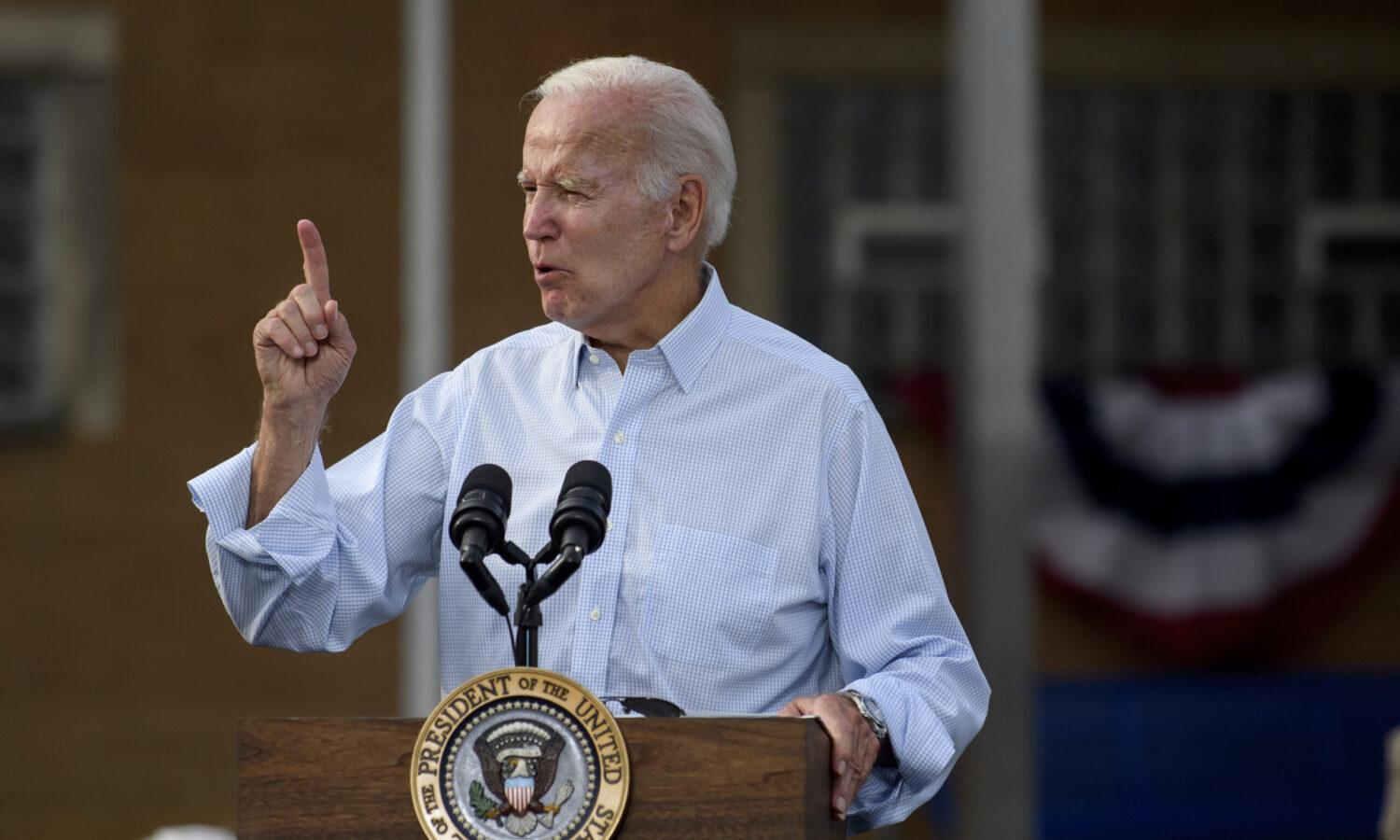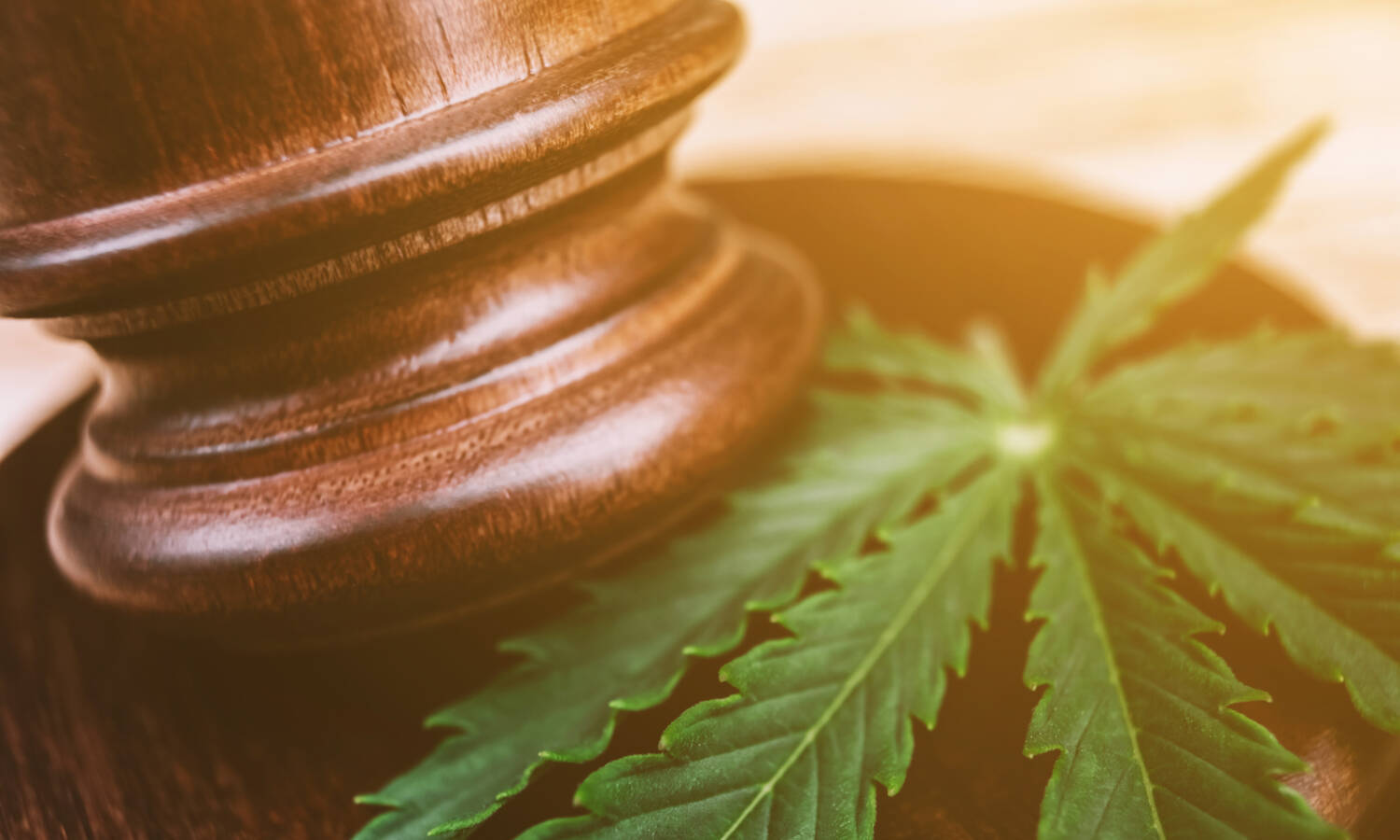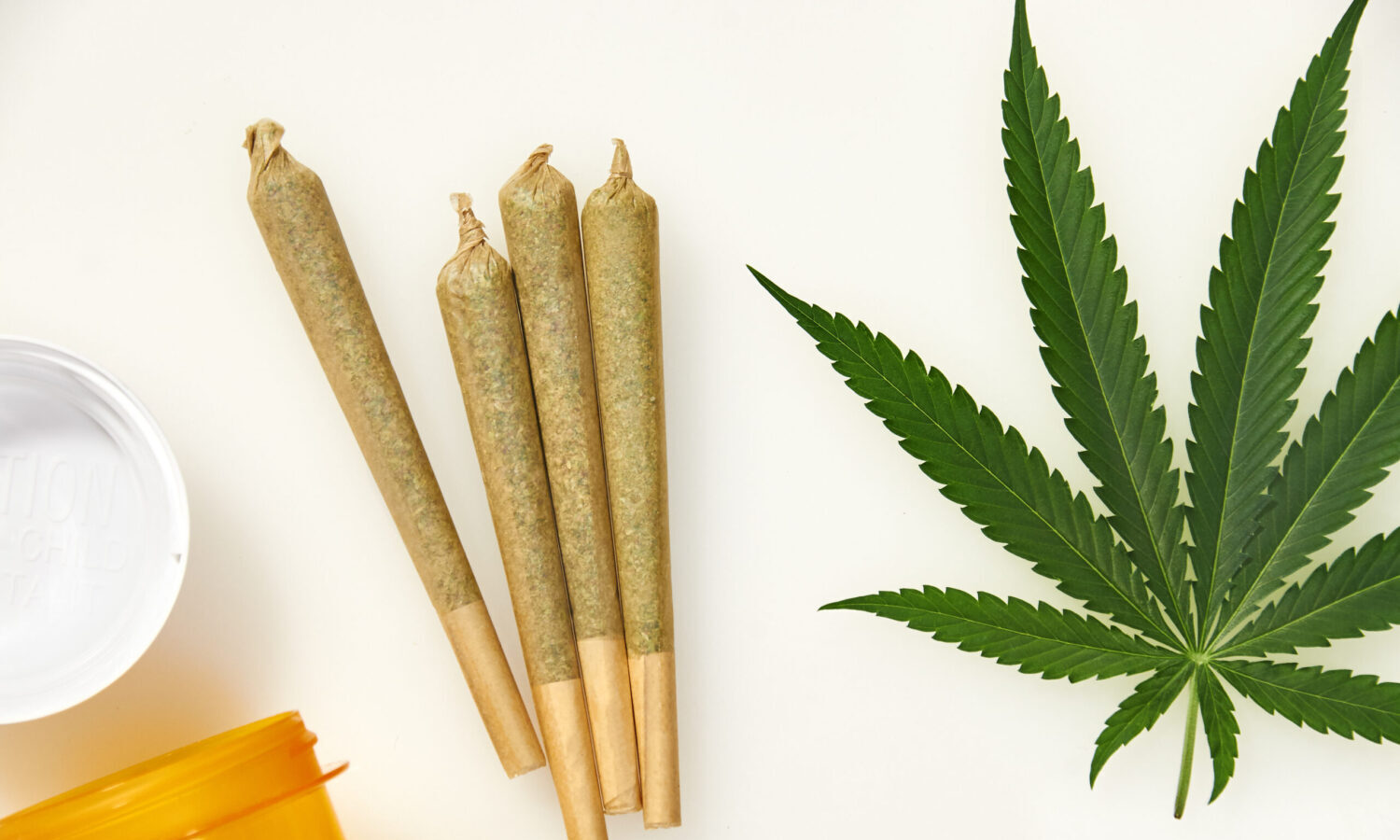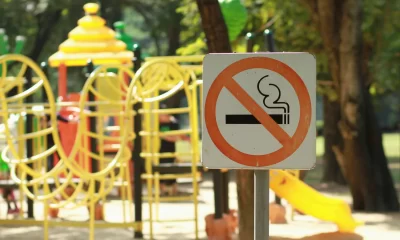Business
Top 10 National Cannabis Stories Of 2022

2022 is quickly coming to a close and we’re getting nostalgic about the cannabis news that graced our headlines this year.
1) Joe Biden’s Statement on Cannabis
On October 6, 2022 President Biden announced that he would pardon all Federal offenses of simple marijuana possession, urge governors to do the same for state offenses, and instruct his administration to initiate proceedings to reschedule or deschedule cannabis.
The Department of Justice and the Department of Health and Human Services have the power under federal law to move marijuana out of Schedule I of the Controlled Substances Act (CSA). Biden’s announcement could very well be the beginning of the end of Federal cannabis prohibition.
You can read more about this development here:

2) Medical Marijuana and Cannabidiol Research Expansion Act Is Signed Into Law
In December, President Biden signed the first ever standalone cannabis bill into law. The new law will allow US researchers to study cannabis without cutting through quite as much red tape. The research conducted under this new law could be used to reevaluate marijuana’s status as a Schedule I substance.
For more information checkout our blog post, The New Marijuana Research Bill is Another Sign that Federal Prohibition is Ending.
3) Dormant Commerce Clause Challenges
In 2022, several states faced legal challenges related to the Dormant Commerce Clause (DCC). The DCC is based on the Commerce Clause in the Constitution which grants Congress the power to regulate commerce among the states. The DCC is a well-established legal doctrine establishing that because the Constitution granted the power to regulate interstate commerce to the Federal government, states are prohibited from enacting laws that discriminate against or unduly burden interstate commerce.
In August, a federal judge nullified Maine’s residency requirement for cannabis business, as covered by MJBizDaily. Regulators in New York have faced a similar challenge. Green Light Law Group has sued the state of Oregon on behalf of Jefferson Packing House on the grounds that Oregon’s ban on the export of cannabis violates the DCC.
You can read more about that case and the DCC issue in New York here:
- Green Light Law Group Client Jefferson Packing House LLC Files Lawsuit Challenging Oregon’s Ban on Marijuana Exports
- Judge Puts New York Dispensary Licenses on Pause on Dormant Commerce Clause Grounds

4) US Court of International Trade Allows for Cannabis Paraphernalia Importation
In the case Eteros Technologies USA vs. United States, the US Court of International Trade held that Washington’s repeal of certain prohibitions related to marijuana drug paraphernalia exempted the Federal prohibition on importing drug paraphernalia to ports in Washington.
A more detailed analysis of the case and what it means for companies who import cannabis-related goods is available here: Cannabis Paraphernalia: Custom and Border Protection Loses Case
5) DEA Considers Cannabis Seeds With Less Than 0.3% THC to Be Hemp and Not Marijuana
In January a letter from the DEA stated that the agency does not consider cannabis seeds with less than 0.3% THC to be marijuana. Instead, the DEA considers such seeds to be hemp, which is federally legal, though tightly regulated and not as a controlled substance.
6) Federal Court Rules Delta-8 Smokable Products Are Federally-Legal Hemp
On May 19, 2022, the United State Court of Appeals for the Ninth Circuit (9th Circuit) ruled that the plain and unambiguous text of the 2018 Agricultural Improvement Act (2018 Farm Bill) compelled the court to the conclusion that e-cigarette and vaping products containing delta-8 THC are lawful under Federal law.
Full coverage of this decision is available here: Federal court Rules Hemp-Derived Delta-8 THC is Lawful
7) FDA Targets CBD and Delta-8 in Warning Letters
The FDA has sent more enforcement letters to CBD businesses in 2022 than in any prior year, with the latest batch sent in November pushing the total to 33. The FDA also expanded its focus to products containing Delta-8 THC.

8) Minnesota (Likely Unintentionally) Broadly Legalizes Hemp-Derived THC
Over the summer, Minnesota lawmakers passed legislation allowing THC infused food and beverage items containing up to 5 milligrams per serving and 50 milligrams per package but did not outright legalize “marijuana” (i.e., cannabis plants with a THC concentration of greater than 0.3%).
Instead, THC products in Minnesota must be derived from hemp plants and cannot exceed a total concentration of 0.3% delta-9 THC. This makes Minnesota, at least temporarily a hot spot for hemp products containing an intoxicating level of THC. While a single item can only contain 50 milligrams of THC, there is no limit as to how many such products one person can purchase or possess.
9) Cannabis Reform Progresses
On Election Night, cannabis-related initiatives five states considered initiatives that would legalize cannabis with only two passing. Despite these high-profile losses, 2022 saw major legislative victories for cannabis.
For a detailed list of these developments, check out NORML’s 2022 Legislative Report
10) Brittney Griner Returns Home
Brittney Griner, two-time Olympic Gold medalist, WNBA Champion and Phoenix Mercury all-star, spent nearly ten months in Russian custody for the possession of less than a gram of cannabis oil. On December 8, President Biden announced that she would be released in a prisoner-swap with Russia. She is now safe back in the US. Hopefully, seeing the harsh penalties imposed by Russia will cause the Biden Administration to fast-track legalization in the US.
Source: https://thefreshtoast.com/news/top-10-national-cannabis-stories-of-2022/
Business
New Mexico cannabis operator fined, loses license for alleged BioTrack fraud

New Mexico regulators fined a cannabis operator nearly $300,000 and revoked its license after the company allegedly created fake reports in the state’s traceability software.
The New Mexico Cannabis Control Division (CCD) accused marijuana manufacturer and retailer Golden Roots of 11 violations, according to Albuquerque Business First.
Golden Roots operates the The Cannabis Revolution Dispensary.
The majority of the violations are related to the Albuquerque company’s improper use of BioTrack, which has been New Mexico’s track-and-trace vendor since 2015.
The CCD alleges Golden Roots reported marijuana production only two months after it had received its vertically integrated license, according to Albuquerque Business First.
Because cannabis takes longer than two months to be cultivated, the CCD was suspicious of the report.
After inspecting the company’s premises, the CCD alleged Golden Roots reported cultivation, transportation and sales in BioTrack but wasn’t able to provide officers who inspected the site evidence that the operator was cultivating cannabis.
In April, the CCD revoked Golden Roots’ license and issued a $10,000 fine, according to the news outlet.
The company requested a hearing, which the regulator scheduled for Sept. 1.
At the hearing, the CCD testified that the company’s dried-cannabis weights in BioTrack were suspicious because they didn’t seem to accurately reflect how much weight marijuana loses as it dries.
Company employees also poorly accounted for why they were making adjustments in the system of up to 24 pounds of cannabis, making comments such as “bad” or “mistake” in the software, Albuquerque Business First reported.
Golden Roots was fined $298,972.05 – the amount regulators allege the company made selling products that weren’t properly accounted for in BioTrack.
The CCD has been cracking down on cannabis operators accused of selling products procured from out-of-state or not grown legally:
- Regulators alleged in August that Albuquerque dispensary Sawmill Sweet Leaf sold out-of-state products and didn’t have a license for extraction.
- Paradise Exotics Distro lost its license in July after regulators alleged the company sold products made in California.
Golden Roots was the first alleged rulebreaker in New Mexico to be asked to pay a large fine.
Source: https://mjbizdaily.com/new-mexico-cannabis-operator-fined-loses-license-for-alleged-biotrack-fraud/
Business
Marijuana companies suing US attorney general in federal prohibition challenge

Four marijuana companies, including a multistate operator, have filed a lawsuit against U.S. Attorney General Merrick Garland in which they allege the federal MJ prohibition under the Controlled Substances Act is no longer constitutional.
According to the complaint, filed Thursday in U.S. District Court in Massachusetts, retailer Canna Provisions, Treevit delivery service CEO Gyasi Sellers, cultivator Wiseacre Farm and MSO Verano Holdings Corp. are all harmed by “the federal government’s unconstitutional ban on cultivating, manufacturing, distributing, or possessing intrastate marijuana.”
Verano is headquartered in Chicago but has operations in Massachusetts; the other three operators are based in Massachusetts.
The lawsuit seeks a ruling that the “Controlled Substances Act is unconstitutional as applied to the intrastate cultivation, manufacture, possession, and distribution of marijuana pursuant to state law.”
The companies want the case to go before the U.S. Supreme Court.
They hired prominent law firm Boies Schiller Flexner to represent them.
The New York-based firm’s principal is David Boies, whose former clients include Microsoft, former presidential candidate Al Gore and Elizabeth Holmes’ disgraced startup Theranos.
Similar challenges to the federal Controlled Substances Act (CSA) have failed.
One such challenge led to a landmark Supreme Court decision in 2005.
In Gonzalez vs. Raich, the highest court in the United States ruled in a 6-3 decision that the commerce clause of the U.S. Constitution gave Congress the power to outlaw marijuana federally, even though state laws allow the cultivation and sale of cannabis.
In the 18 years since that ruling, 23 states and the District of Columbia have legalized adult-use marijuana and the federal government has allowed a multibillion-dollar cannabis industry to thrive.
Since both Congress and the U.S. Department of Justice, currently headed by Garland, have declined to intervene in state-licensed marijuana markets, the key facts that led to the Supreme Court’s 2005 ruling “no longer apply,” Boies said in a statement Thursday.
“The Supreme Court has since made clear that the federal government lacks the authority to regulate purely intrastate commerce,” Boies said.
“Moreover, the facts on which those precedents are based are no longer true.”
Verano President Darren Weiss said in a statement the company is “prepared to bring this case all the way to the Supreme Court in order to align federal law with how Congress has acted for years.”
While the Biden administration’s push to reschedule marijuana would help solve marijuana operators’ federal tax woes, neither rescheduling nor modest Congressional reforms such as the SAFER Banking Act “solve the fundamental issue,” Weiss added.
“The application of the CSA to lawful state-run cannabis business is an unconstitutional overreach on state sovereignty that has led to decades of harm, failed businesses, lost jobs, and unsafe working conditions.”
Business
Alabama to make another attempt Dec. 1 to award medical cannabis licenses

Alabama regulators are targeting Dec. 1 to award the first batch of medical cannabis business licenses after the agency’s first two attempts were scrapped because of scoring errors and litigation.
The first licenses will be awarded to individual cultivators, delivery providers, processors, dispensaries and state testing labs, according to the Alabama Medical Cannabis Commission (AMCC).
Then, on Dec. 12, the AMCC will award licenses for vertically integrated operations, a designation set primarily for multistate operators.
Licenses are expected to be handed out 28 days after they have been awarded, so MMJ production could begin in early January, according to the Alabama Daily News.
That means MMJ products could be available for patients around early March, an AMCC spokesperson told the media outlet.
Regulators initially awarded 21 business licenses in June, only to void them after applicants alleged inconsistencies with how the applications were scored.
Then, in August, the state awarded 24 different licenses – 19 went to June recipients – only to reverse themselves again and scratch those licenses after spurned applicants filed lawsuits.
A state judge dismissed a lawsuit filed by Chicago-based MSO Verano Holdings Corp., but another lawsuit is pending.
Source: https://mjbizdaily.com/alabama-plans-to-award-medical-cannabis-licenses-dec-1/
-

 Business2 years ago
Business2 years agoPot Odor Does Not Justify Probable Cause for Vehicle Searches, Minnesota Court Affirms
-

 Business2 years ago
Business2 years agoNew Mexico cannabis operator fined, loses license for alleged BioTrack fraud
-

 Business2 years ago
Business2 years agoAlabama to make another attempt Dec. 1 to award medical cannabis licenses
-

 Business2 years ago
Business2 years agoWashington State Pays Out $9.4 Million in Refunds Relating to Drug Convictions
-

 Business2 years ago
Business2 years agoMarijuana companies suing US attorney general in federal prohibition challenge
-

 Business2 years ago
Business2 years agoLegal Marijuana Handed A Nothing Burger From NY State
-

 Business2 years ago
Business2 years agoCan Cannabis Help Seasonal Depression
-

 Blogs2 years ago
Blogs2 years agoCannabis Art Is Flourishing On Etsy











